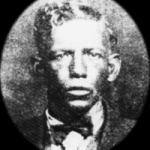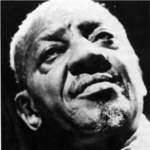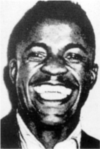I DESERVE THE CREDIT
Blues music, with its rich history, has always been a fertile ground for artistic exchange and adaptation, but it is also a terrain fraught with issues of appropriation and credit. As we delve into the annals of this profound and influential genre, we encounter a fascinating tapestry of musicians who, in the pursuit of their art, freely borrowed and adapted each other's work. Be it the legendary Charley Patton, the influential Son House, or the renowned Bessie Smith, each artist's journey presents a unique insight into the dynamics of artistic transmission and the controversial nature of 'borrowing'. This article explores the complex, often contentious landscape of the Blues, shedding light on the thin line between homage, influence, and outright theft in the music industry.
 While it's common knowledge that musicians in the blues genre have a long-standing tradition of borrowing and adapting the tunes and lyrics of others, some critics label this as 'artistic transmission', while others see it as plain theft. Even the names of the players were not immune to this practice! In an era where copyright protection was largely overlooked, it was customary for musicians to imitate each other's styles, exchange phrases, and occasionally, enter into formal apprenticeship. An example is Charley Patton, who under Henry Sloan's instruction, honed his craft at Dockery Plantation and established himself as a competent player by his 20s.
While it's common knowledge that musicians in the blues genre have a long-standing tradition of borrowing and adapting the tunes and lyrics of others, some critics label this as 'artistic transmission', while others see it as plain theft. Even the names of the players were not immune to this practice! In an era where copyright protection was largely overlooked, it was customary for musicians to imitate each other's styles, exchange phrases, and occasionally, enter into formal apprenticeship. An example is Charley Patton, who under Henry Sloan's instruction, honed his craft at Dockery Plantation and established himself as a competent player by his 20s.
Moving forward a few years, Patton was invited to join the band of W C Handy, a significant recognition for a young talent. Son House was greatly influenced by Patton's repertoire, just as he, in turn, deeply influenced a young Robert Johnson, who reportedly received his first guitar at Dockery. These key figures in blues music, all residing in the Clarksdale area in the late 1920s, significantly contributed to the enrichment of the Delta Blues through their creative collaboration.
Ethnographers and musicologists of the era have also given us invaluable insights into the music. Dorothy Scarborough's 'On the Trail of Negro Folksongs' sheds light on the transmission of tunes and stories across generations, highlighting the role of oral tradition in educating illiterate individuals about their culture. However, the concept of 'giving' becomes problematic when the 'gift' is subsequently sold on. Howard Odum's field recordings include a singer, possibly a relative of Bessie Smith, who begins each song with the declaration of his name and home city, clearly frustrated by the appropriation of his work.
Such issues were not exclusive to unknown musicians, but extended to recording artists as well. Bessie Smith was being deceived by her agent, leading her to sign an exclusively personal contract with Colombia in 1923 that offered a better compensation of $125 per track. Her debut release, 'Down-hearted Blues', sold a staggering 780,000 copies, but her contract had not provisioned for royalties.
Following the murder of John Lee 'Sonny Boy' Williamson in Chicago in 1948, Aleck 'Rice' Miller adopted his name. Despite being arguably more talented and a better entertainer than John Lee, Aleck found it necessary to claim legitimacy as the 'real' Sonny Boy. The truth remains ambiguous, as both men may have had a propensity for misrepresentation. Years later, the quick-tempered Little Walter allegedly shot a man performing under his name.
Blues is a dynamic genre, where singers often alter their lyrics to include lines or verses they've heard, adopting a 'cut and paste' approach. Tunes, melodies, and riffs are frequently utilised by musicians who didn't originate them, blurring the line between inspiration and outright plagiarism. Willie Dixon, often credited with writing hundreds of songs during the Chicago Blues' Golden Age, reportedly 'adapted' riffs and phrases from young Southern musicians, trying to impress him with their best work. Howlin' Wolf successfully sued Led Zeppelin for reworking 'Killin Floor' as 'The Lemon Song', and Chuck Berry did the same when the Beach Boys used 'Sweet Little Sixteen' as the tune for 'Surfin USA'. Both 'new' versions greatly outsold the originals, and it's likely that the original authors didn't receive a fair deal.
Earning credit for your Blues requires a fight.
In conclusion, the story of Blues is a poignant reflection of the longstanding tradition of artistic adaptation, influence, and, at times, outright appropriation, nestled within its soulful chords and poignant lyrics. This genre, steeped in history, illustrates the complexities of 'borrowing' in the world of music and prompts us to question the very nature of creativity. It serves as a stark reminder of the need for a more equitable system, one that adequately acknowledges the contributions of all artists, and protects their rights. As we continue to enjoy the timeless melodies of the Delta Blues, may we also remember to value and respect the creative origins and journey of these influential tunes. The Blues, as it seems, will forever remain a powerful testament to the thin line between homage and theft in the music industry.


